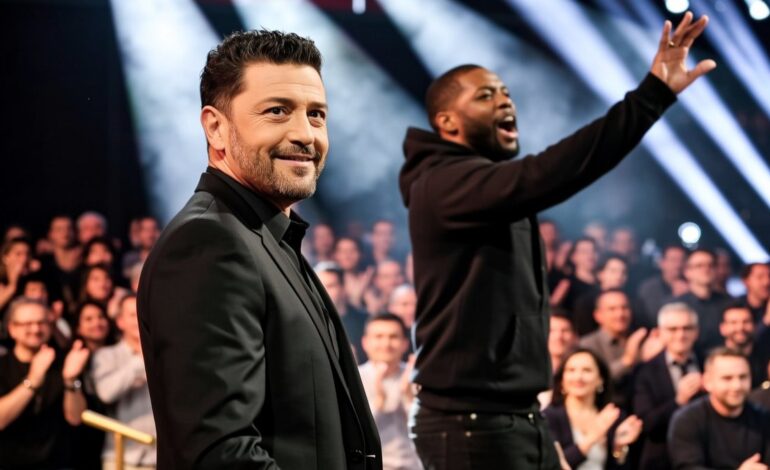Adam Sandler’s SNL Song Sparks Kanye West Backlash: A Lyric That Lingers

Maya Rivers here, a name that dances on the edge of poetic rebellion and journalistic restraint. I’ve always believed that truth is stranger than fiction, and sometimes, the most compelling stories are sung rather than spoken. So let us begin this tale not with a whisper, but with a lyric—one that echoed through the halls of Studio 8H and rippled across the internet like a stone skipping over scandal.
Adam Sandler’s performance of “50 Years” during the SNL: 50 anniversary special was more than a nostalgic nod to the show’s legacy—it was a lyrical reckoning. The comedian, known for his goofy charm and cinematic comfort food, delivered a line that cut through the noise like a well-tuned guitar string: “50 years of finding out your favorite musician is antisemitic.”
The line, co-written with SNL writer Dan Bulla, wasn’t just a throwaway verse—it was a statement. And in a post-show interview with Vulture, Sandler was pressed on whether he had a specific artist in mind. His answer was diplomatic but pointed: “Well, you know, whoever wants to grab that one, it’s up to them. I can’t say a specific, because, sadly, there’s been a few.”
But someone clearly felt the sting. Kanye West, whose name has become synonymous with controversy, took to X (formerly Twitter) to respond. “Adam Sandler, thank you for the love,” he tweeted—before deleting the post. The irony was thick, given that just weeks earlier, West had posted a series of antisemitic rants, including a bizarre claim that Elon Musk had stolen his “Nazi swag” at Trump’s inauguration and a chilling ode to Hitler: “Hitler was sooooo fresh.”
It wasn’t the first time West’s words had caused outrage, but it was one of the more brazen examples of his descent into dangerous rhetoric. Amid the chaos, rumors swirled that his wife, Bianca Censori, had had enough. A source told The New York Post at the time, “The swastika shirt was the last straw. She told him that’s not who she is, and that she can’t be associated with that.”
West’s publicist, Milo Yiannopoulos, quickly denied the breakup speculation, insisting the couple was still together and planning a Valentine’s Day celebration. And in May, West claimed he had renounced antisemitism, writing on X, “I am done with antisemitism. I love all people. God forgive me for the pain I’ve caused.”
But the Anti-Defamation League wasn’t convinced. “We’ve seen this kind of attempted apology from Kanye before, only for him to back down over and over again,” a spokesperson told Billboard. The skepticism was warranted—West’s pattern of apology and relapse has become all too familiar.
Back at SNL, Sandler and Bulla stood by their songwriting choices. “We had some extra, but we knew there was only so much time,” Sandler explained. Bulla added, “There’s a hundred other people you could have said. But you can’t kick yourself for that, or you’re gonna go crazy trying to do it.”
And perhaps that’s the point. In a world where celebrities wield influence like weapons, sometimes the most powerful statements are the ones left unsaid. Sandler’s lyric was a mirror held up to the industry—a reminder that silence in the face of bigotry is complicity.
As for West, his path forward remains uncertain. The apology rang hollow to many, and the ADL’s dismissal was a stark reminder that redemption is earned, not declared. But the story doesn’t end here. It lingers, like the final note of a song that refuses to fade.
And so, the tale concludes, drifting into memory—but not forgotten.
Sources: Celebrity Storm and The New York Post, Vulture, Billboard
Generated by AI




